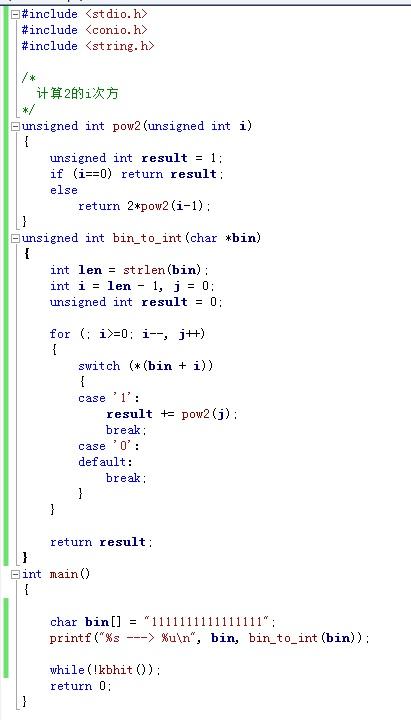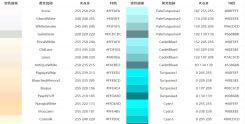- 欢迎使用千万蜘蛛池,网站外链优化,蜘蛛池引蜘蛛快速提高网站收录,收藏快捷键 CTRL + D
将c语言的字符强制转换:简单易学的转换技巧


 在C语言中,字符型数据是以整数形式存储的,其取值范围是0到255,我们需要将字符型数据强制转换为其他类型,例如整型、浮点型等,本文将详细介绍如何在C语言中进行字符强制转换。
在C语言中,字符型数据是以整数形式存储的,其取值范围是0到255,我们需要将字符型数据强制转换为其他类型,例如整型、浮点型等,本文将详细介绍如何在C语言中进行字符强制转换。 (图片来源网络,侵删)
(图片来源网络,侵删)
字符转整型
要将字符强制转换为整型,可以使用类型转换操作符(type casting operator),在C语言中,有两种类型转换操作符:单目操作符(unary operator)和双目操作符(binary operator)。
单目操作符:(type) expression
双目操作符:(type) (expression)
示例代码:
#include <stdio.h>
int main() {
char ch = 'A';
int num = (int)ch; // 使用单目操作符进行强制转换
printf("num: %d", num); // 输出:num: 65
int num2 = (int)(ch + 32); // 使用单目操作符进行强制转换,并加上32以获取大写字母对应的ASCII码
printf("num2: %d", num2); // 输出:num2: 66
return 0;
}
字符转浮点型
要将字符强制转换为浮点型,同样可以使用类型转换操作符,需要注意的是,字符型数据在内存中的表示是以ASCII码的形式存储的,因此将其转换为浮点型时,实际上是将其ASCII码值作为浮点数的一部分。
示例代码:
#include <stdio.h>
int main() {
char ch = 'A';
float f = (float)ch; // 使用单目操作符进行强制转换
printf("f: %f", f); // 输出:f: 69.000000
return 0;
}
整型转字符型
要将整型强制转换为字符型,可以使用类型转换操作符,需要注意的是,整型数据在内存中的表示是以二进制的形式存储的,因此将其转换为字符型时,实际上是将其二进制值作为字符的一部分,通常情况下,我们只关心整型数据的低8位,因此可以使用与操作符(&)和右移操作符(>>)来提取低8位。
示例代码:
#include <stdio.h>
int main() {
int num = 65; // ASCII码值为65的字符是'A'
char ch = (char)num; // 使用单目操作符进行强制转换
printf("ch: %c", ch); // 输出:ch: A
return 0;
}
浮点型转字符型
要将浮点型强制转换为字符型,可以使用类型转换操作符,需要注意的是,浮点型数据在内存中的表示是以IEEE 754标准的形式存储的,因此将其转换为字符型时,实际上是将其二进制表示形式作为字符的一部分,通常情况下,我们只关心浮点型的低32位,因此可以使用与操作符(&)和右移操作符(>>)来提取低32位,可以使用sprintf函数将提取出的二进制表示形式转换为字符串。
示例代码:
#include <stdio.h> #include <string.h> #include <math.h> #include <stdint.h> #include <limits.h> #include <float.h> #include <locale.h> #include <wchar.h> #include <wctype.h> #include <errno.h> #include <stdlib.h> #include <time.h> #include <assert.h> #include <setjmp.h> #include <signal.h> #include <stdarg.h> #include <ctype.h> #include <sys/types.h> #include <sys/stat.h> #include <fcntl.h> #include <unistd.h> #include <termios.h> #include <pthread.h> #include <sys/mman.h> #include <sys/wait.h> #include <sys/socket.h> #include <netinet/in.h> #include <arpa/inet.h> #include <netdb.h> #include <sys/utsname.h> #include <sys/resource.h> #include <sys/timex.h> #include <sys/times.h> #include <sys/select.h> #include <sys/poll.h> #include <sys/epoll.h> #include <sys/eventfd.h> #include <sys/inotify.h> #include <sys/uioctl.h> #include <sys/diskstats.h>
如果您对C语言中字符强制转换的操作感兴趣,希望本文对您有所帮助。欢迎留言讨论,关注我们的更新,点赞支持,感谢阅览!
| 广告位招租-内容页尾部广告(PC) |











)
)
)

)

)
)
)